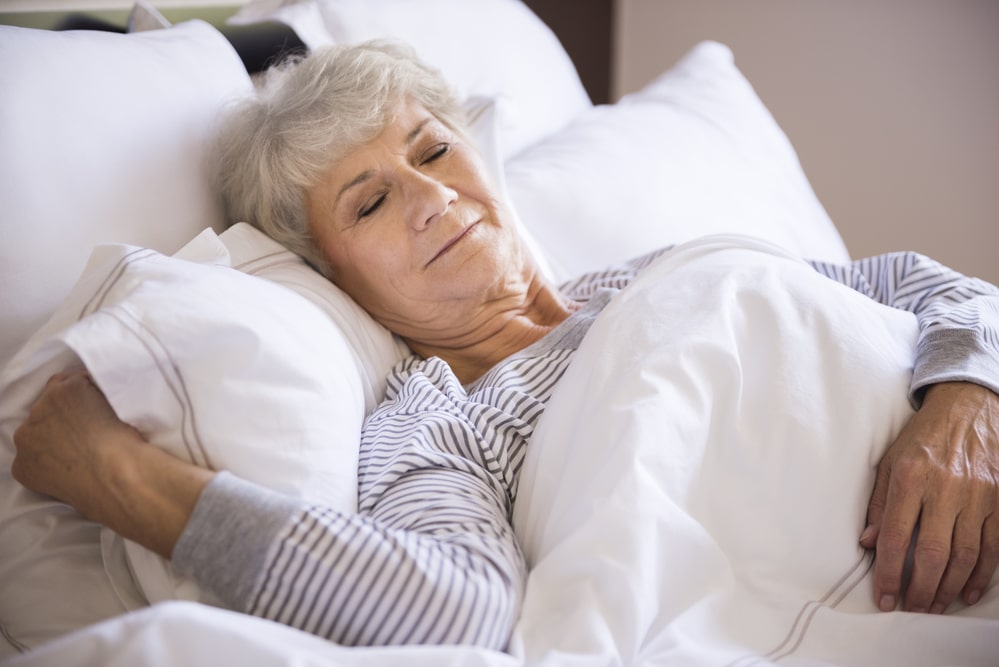How Much Sleep Do Seniors Need?
According to the Centers for Disease Control and Prevention, the National Sleep Foundation’s guidelines for an adult are 7 or more hours of sleep within a 24-hour period. How much sleep do seniors need? For adults 61 to 64 years of age, the recommendation is 7 to 9 hours. For those 65 years and older, it is 7 to 8 hours. While there may be some individual variation, adults of all ages need roughly the same amount of sleep to maintain their wellness.
A Question of Quality
If you’re a senior who routinely gets slightly less or slightly more than the recommended 7 to 8 hours of sleep, don’t panic. As long as you wake up feeling refreshed and are generally healthy, then you’re probably getting the amount of sleep that your body needs. The problems begin when someone is sleeping significantly more or less than the recommended hours, but they still don’t feel rested or are struggling with sleep-related health problems. When should you be worried? HealthinAging.org offers a list of red flags for poor sleep quality:
- Persistent fatigue
- Daytime sleepiness
- Irritability or mood changes
- Frequent nighttime awakenings
- Excessive snoring
- Brief interruptions in breathing at night
Tips for Better Sleep
Many seniors believe that sleeping less is simply part of aging. That’s a myth, and accepting it can have serious consequences. According to the American Academy of Sleep Medicine, seniors who have poor nighttime sleep are more likely to have attention and memory problems, depressed mood, nighttime falls, and excessive daytime sleepiness. They’re also more likely to report a poorer quality of life. Fortunately, you don’t have to simply accept a decline in sleep quality. There are a number of tips you can try to reclaim your best sleep:
- Talk with your doctor to rule a medical issue like sleep apnea or a movement disorder. You’ll also want to review your medications. After all, some medications can trigger insomnia.
- Maintain the same sleep schedule every day. Don’t change it on the weekends.
- Try to engage in exercise or physical activity during the day so that you’ll be tired enough to sleep.
- If sleeping at night is difficult, try to limit napping during the day so that you can reset your sleep schedule.
- Get outside and enjoy the sunshine. Spending time in the sun can help you reset your sleep cycle.
- Turn off electronic devices like cellphones, laptops, and tablets for at least 30 minutes before your bedtime to help your mind and eyes relax.
- Limit your intake of caffeine and alcohol, especially in the hours before bed.
- Follow a relaxing bedtime routine to prepare your mind and body for bed so that you can fall asleep more quickly.
- Make your bedroom a safe space. Minimize disruptive sounds. However, you may find having a source of white noise helps cover other small noises, making it easier for you without being disturbed. Avoid light pollution, but try to ensure that you have enough light present for safety.
- Choose a quality mattress that provides the proper mix of comfort and support. Top it with pillows and bedding that you find soothing.
- Keep the bedroom cool. A cooler temperature can help you fall asleep and stay asleep.
Whether it’s a good night’s sleep, a healthy breakfast, or a carefree afternoon relaxing on the patio, the team at Kinship Pointe always supports its residents.
So if you’re hoping to retire in Nebraska, look no further than Kinship Pointe. We offer assisted living and independent living communities in four locations: Kearney Northridge, McCook, Seward, and Wayne. At Kinship Pointe, our delightful staff works every day to help residents pursue their passions and live life to the fullest. To learn for yourself what makes Kinship Pointe so special, schedule a tour or contact us online.

